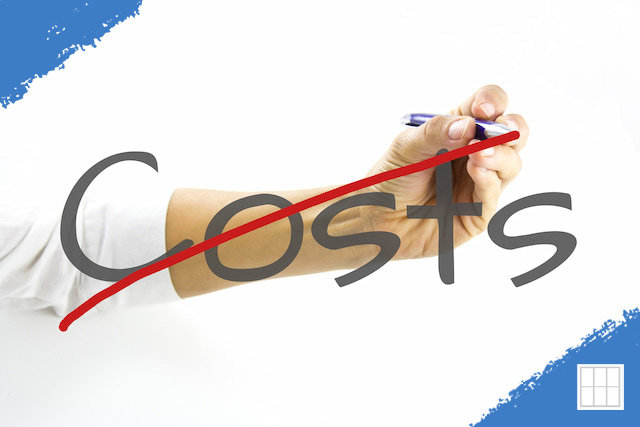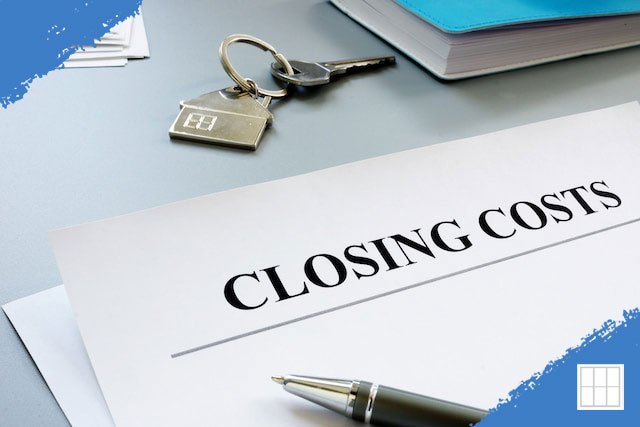Mortgage closing costs are an essential aspect of buying a home. Knowing what to expect…

No Cost Refinance in Kansas City
When looking to refinance, a homeowner has several rate and cost options to choose from. Homeowners can pay upfront points to buy a lower interest rate resulting in high closing costs. Or, go with a no-point loan with a slightly higher interest rate with third-party fees, such as appraisal fees, title insurance, county recording fees, etc. And finally, a no closing cost loan.
A no-cost refinance is where the lender provides a closing credit to pay third-party fees in exchange for a slightly higher rate, including appraisal fees, title company fees, county recording fees, etc. The lender provides a closing credit in exchange for slightly higher interest than they could get if they paid the costs themselves.
Is a no-cost refinance right for me?
First, there are some questions that you would need to answer to see if a no-cost refinance make sense for your situation:
- How long do you plan on retaining your home?
- How much will the rate increase if you choose the no-cost option?
- What is the breakeven point of a no-point loan with third-party costs versus a no-cost loan?
- Do you have any financial changes in the future? Such as employment changes, kids going to college, retirement, etc.
How much the interest rate will increase depends on several factors. Primarily, is the property type a primary residence, and what is the borrower’s credit score? Investment property will be challenging to obtain a no-cost refinance. In addition, some loan types, such as an adjustable rate mortgage, can also be challenging to do a no-cost refinance.
Discover when is the right time to refinance.
How to calculate the breakeven point of third party closing costs
You would divide the third-party cost by the monthly savings, will determine the “breakeven point.” As an example, $3,000 (costs) / $50.00 (monthly savings) = 60 months to recoup the costs.
The breakeven point illustrates how long the borrower would have to stay in the home to recover the cost of the loan.
With a no-cost loan, the breakeven point would be immediate. However, if you plan to keep your home for more than three years, you may want to compare a no-point loan with third-party fees.
Contact a mortgage advisor at Metropolitan Mortgage to determine which loan has the cheapest financing for your term of ownership.
Typical Refinance Closing Costs
The closing costs can vary since they are affected by the purchase price, loan type, loan type, and credit score. The fees will typically include:
- Appraisal fees to cover the cost associated with obtaining the current market value of a home should an appraisal be needed.
- Credit Report fees are for each borrower that is applying for the loan.
- Government Recording fees the County charges to record the mortgage.
- Underwriting/Administration fees cover the cost of underwriting the loan.
- Title service fees for the closing/escrow fee and issuing a title search for the lender.
- Survey Fee (typically new construction) confirm land boundaries, such as the plot of land a home sits on, and any sub-surface improvements, like a septic tank or well.
Loan origination fees are charged by many mortgage lenders, even for a refinance. Metropolitan Mortgage does not charge origination fees unless you want to buy down the interest rate.
A true “no cost refinance” provides a lender credit at closing that covers all third-party costs. Other lenders may claim they offer “no fee” loans, which will not have lender charges but will still include all third-party expenses and even a mortgage origination fee. Other mortgage companies may simply add the closing costs to the loan balance. Make sure to review your closing costs, which are disclosed on a loan estimate and the closing disclosure.
Example of how Closing Costs vs. No Closing Costs
Before deciding on a loan, comparing a loan with costs to a loan without charges is wise. Comparing these loan options will determine the cheapest financing for the term of ownership. The no-cost option is always better for a short period of ownership, and a loan with costs is better for a longer time. Borrowers frequently shop for the cheapest rate rather than the most affordable financing. Make sure to get a written estimate of your options to determine the best loan for you.
Loans with closing costs raise your loan amount.
Your total mortgage balance increases when you choose to roll the closing costs into your loan. For example, let’s say you’re refinancing your mortgage of $300,000 with $5,000 in total closing costs. Your monthly payment would be lower with a $305,000 loan than a $300,000 no-cost loan. Here’s why:
Let’s compare the difference between a $300,000 mortgage and no costs to a $305,000 refinance with costs. The no-cost loan has an interest rate of 5%, and the loan with costs has a 4.75% interest rate. Let’s also assume that both loan terms are for 30 years. For the $300,000 refinance, your monthly loan payment would be $1,610.46, including principal and interest. With a $305,000 refinance with closing costs, your monthly payment would be $1,591.02. That difference is about $19.44 more per month, but you still have $5,000 more in equity.
FAQs For a No Cost Refinance
What are the benefits of a no-cost mortgage refinance?
A no-closing cost refinance allows you to keep your current payoff balance with out having to roll in traditional costs. Thereby, protecting the amount of equity you presently have in your home. However, you trade this benefit for a slightly higher interest rate which would also reduce the monthly savings compared to a loan with costs. A mortgage comparison will help clarify the best loan option for you.
When does a mortgage refinance with no closing costs make sense?
If you plan to stay in your home for a shorter period, 5-years or less, a no-closing-cost refinances work best and avoids typical refinance costs, and you’ll sell the house before you recoup the closing costs.
The shorter the time you plan to live in your home, the more it makes sense to choose a no-closing cost refinance.
When would a refinance with no closing costs not work?
You will pay more over time with a no-closing-cost refinance than you would by paying your closing costs upfront. A no closing cost loan would not be beneficial if you keep your home for longer time. Also, a cash-out refinance may not be beneficial.
Why Refinance with Metropolitan Mortgage?
At Metropolitan Mortgage, we offer true no-cost loans with lender credits sufficient to cover all lender and third-party fees. We can quickly compare options side by side and determine which option saves you the most money for your situation.
If you are unsure which loan option is right for you, we have experienced loan officers who can guide you through each scenario and help you pick the one that offers the most significant overall savings. Or you can use our Refinance Calculator to run the numbers independently.
We’re a local company that’s a family-owned mortgage firm that’s officed in Overland Park and Kansas City, and we serve the entire state and the broader Midwest region, including Kansas and Missouri. Please feel free to contact us with any mortgage-related questions or to get a rate quote.



